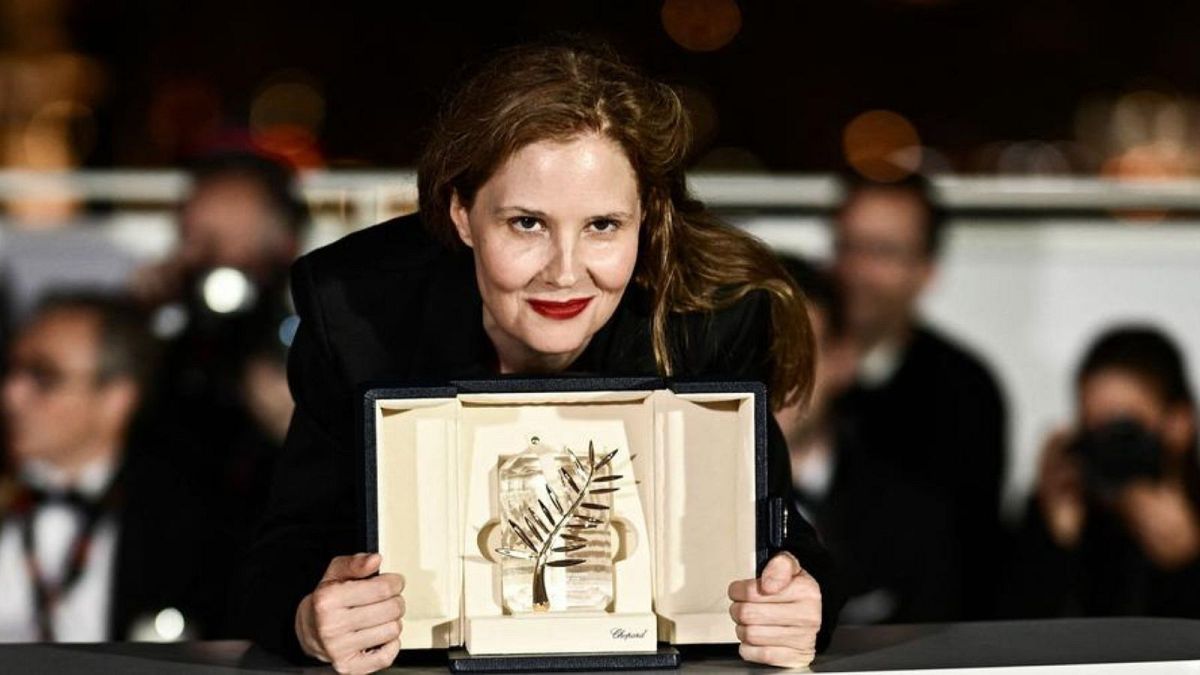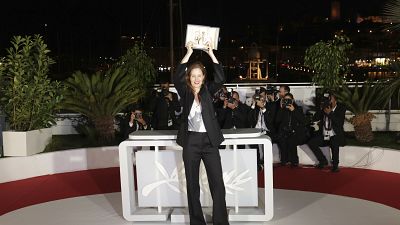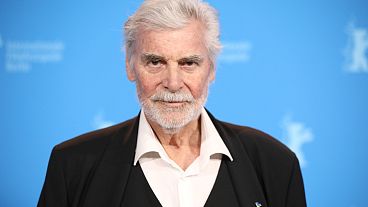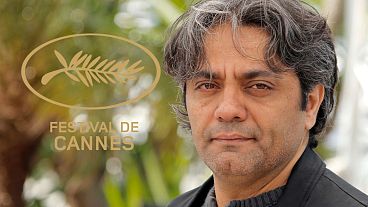Did Justine Triet's 'Anatomy of a Fall' deserve this year's Palme d'Or?
Madness of the Cannes Film Festival is over, and the red carpet has been rolled up for another year.
It’s a glamorous, starry, but also uniquely exhausting experience that makes you oscillate between seeing life-changing films and being surrounded by brilliant people passionate about their craft, to being sleep deprived after seeing 36 films in the space of 10 days.
While this year’s main talking points mostly centred around the festival’s organisation woes, the controversial return of Johnny Depp to the big screen, the domination of Octogenarians on the red carpet (Harrison Ford, Martin Scorsese, Marco Bellocchio, Ken Loach) and whether Indiana Jones was going to get a fitting swansong (spoiler: he didn’t), there’s one question that I’ve been asked more than any other since the end of the festival: Are you happy with the Palme d’Or winner?
Little column A, little Column B…
On the whole, Ruben Östlund and his jury got it mostly right for this 76th edition’s terrific line-up of films. It’s a been a vintage year, with one of the most dynamic and inspiring Cannes Competition slates in recent memory; even the films I disliked or didn’t gel with (Jean-Stéphane Sauvaire’s Black Flies, Nanni Moretti’s A Brighter Tomorrow, Wes Anderson’s Asteroid City, Catherine Corsini’s Homecoming), I’m very glad I saw. The same could be said about the Out of Competition films which were, by in large, disappointing (Cobweb, Indiana Jones and the Dial of Destiny, Jeanne du Barry and, to a lesser extent, Killers of the Flower Moon).
It’s not every year that you can say the best films got awarded – and they did this year. The laureates may not be in the order I would have put them in, but it’s hard to argue with the outcome – especially for the male acting prize, which went to the wonderful Japanese actor Koji Yakusho, of Wim Wenders’ Perfect Days. The film is a humane and meditative tale about the lyrical joys of everyday blessings and embraces what the Japanese refer to as Komorebi – literally “sunlight leaking through trees”, a concept that recognizes the impermanence of life and gives space to the dance between hardships and lighter moments while we still can. Yakusho’s gentle and complex performance beautifully embraces this, and the final shot of his face drifting between bliss and melancholy to the sounds of Nina Simone’s ‘Feeling Good’ had me weeping like a lost child.
As you can tell, I’m a fan.
Regarding the recipient of this year’s Palme d’Or… Here goes.
This year’s Cannes Film Festival was a historic one for female filmmakers. Not only was there a record number of selected films helmed by women in Competition (seven in total), Cannes’ top prize was bestowed onto one of the seven, two years after French director Julia Ducournau became the first solo female director to win the coveted Palme d’Or for the mind-melting Titane.
French filmmaker Justine Triet won for L’Anatomie d’une chute (Anatomy of a Fall), the story of a successful novelist (the wonderful Sandra Hüller) who is accused of her husband’s murder and who must fight to claim her innocence while her marital life is dissected during the trial.
And for the sticklers out there, yes, Triet is technically the third woman to ever win; however, Jane Campion shared her 1993 Palme d’Or for The Piano with Chen Kaige and his film Farewell My Concubine – hence only second ‘solo’ female filmmaker. And for the record, and not at all choosing to ignore the fact that Cannes has been frustratingly dragging its feet on the glitzy red carpet when it comes to gender representation in its main category, jury president Steven Spielberg and his jury did decide to co-award the 2013 Palme d’Or to director Abdellatif Kechiche for Blue is the Warmest Colour and his two lead female stars, Léa Seydoux and Adèle Exarchopoulos. That was the first and still solitary time the award was ever given to actors. So, when faced with a particularly pernickety quiz master, you can smugly argue that technically, Triet is the fifth woman to ever receive the Palme.
Pedantry aside, this year’s win feels like a solid but strangely disappointing choice, as Anatomy of a Fall lacks some of the daring and memorable cinematic verve of past winners like Uncle Boonmee Who Can Recall His Past Lives, Amour, Winter Sleep, Parasite or the aforementioned Titane. It’s a major leap forward compared to Triet’s 2019 already strong meta-comedy Sibyl and a brilliantly written film that manages to morph the initial narrative centred around a procedural into a courtroom drama in a confident and engaging way. I would have happily given it the Best Screenplay award, especially for its argument scenes. It is a film which has a wide appeal and will rightfully be talked about come next year’s awards season, especially for Best International Feature Film at the Oscars.
While I can’t be too upset by Anatomy of a Fall ’s win – it does stand as one of my Top 5 films of this year’s Competition alongside The Zone of Interest, Perfect Days, Fallen Leaves and Four Daughters), I somehow doubt it’ll have the staying power of previous Cannes winners. I for one will remember this year’s edition more for the overwhelming and profound impact of The Zone of Interest (also starring Sandra Hüller and my pick for this year’s most richly deserved Palme d’Or, as well as the closest thing to a critical consensus pick for the best film to play in Competition this year) and the emotional whirlwind I felt during Perfect Days.
Still, both got rewarded by the closure of the festival – The Zone of Interest settling for the Grand Prix (the de facto second place) and Perfect Days for the aforementioned Best Actor – so it’s hard to bellyache too much.
One element that has irked me, however, has been the French press’ reaction to Anatomy of a Fall ’s win, specifically with regards to Triet’s acceptance speech. Many have bemoaned Triet’s engaged “lecture” when she received the award. In her speech, the filmmaker took aim at the French government’s “repression” of pension protests, referring to the fact that demonstrations were banned from the area around the Palais this year. She added that the “commercialisation of culture that this neoliberal government supports is in the process of breaking France’s cultural exception, without which I wouldn’t be here today.”
Granted, festivals and awards ceremonies don’t exist in a vacuum, and artists have the right to use their platform to express anger, solidarity or mention current events. The world is watching, and these occasions are always a perfect opportunity to make a statement. Yes, Triet’s comments weren’t subtle and another example of the French proclivity for a good moan, as well as the Gallic obsession with the May '68 spirit, which has been crystalized into a popular yearning to recreate a spirit of protest, in a warped form of nostalgia. And yes, for a film that had no particular political leanings or socio-political subtext to fully justify the astuteness of the Macron blasting, it felt a little surprising, if not off-piste. Anatomy of a Fall is many things, but it isn’t a Ken Loach joint.
A more perceptive and shrewd statement was made by John C. Reilly, who presented the Best Screenplay award. Before the announcement of the winner, Reilly took a long pause. Once he broke it, he highlighted how a cinema without writers wouldn’t exist, expressing solidarity with the ongoing WGA strike. This felt well-timed and on brand considering the nature of the award and the actor’s need for a script in order to exercise their craft.
Triet’s moment was significantly more cack-handed. It wasn’t an outburst though, as many are choosing to describe it, in a shameless bid to weaponize the director’s speech to better criticise outspoken artists; it was tokenistic. Let's leave it at that, as it shouldn’t detract from the historic nature of the win, which should (hopefully) prove Jane Fonda right when she labelled the number of female Palme contenders this year “historic”, following it up with: “But one day it will be normal.” Triet’s win should also encourage more festivals to select films by those who remain underrepresented in major festival line-ups and in the industry; not just women, but young filmmakers, POCs and minorities, those who need a platform like Cannes to launch their profile and further their artistic careers. There were several African films in Competition this year, for instance, and on the strength of Ramata-Toulaye Sy's debut film Banel & Adama and Kaouther Ben Hania's Four Daughters, a third one wouldn’t have gone amiss. With this in mind, a slot occupied by two-time Palme d’Or winner Ken Loach and what could be his final film, the worthy but frustratingly sermonizing The Old Oak, should have been placed Out of Competition rather than in this year’s 21 Palme contenders.
One last thing about Anatomy of a Fall – it’s also the first time that a film which wins the Palme d’Or also wins the equally prestigious and utterly charming Palme d’Og prize, which celebrates the best canine performance in a film. This year’s “who’s a good boy, yes you are, yes yes yes, hmm hmm hmm” award went to border collie co-star Messi for his performance as Snoop in Triet’s film.
It was deserved... And I suspect non-negligible when it comes to putting my slightly tepid appreciation for this year's Palme d’Or to bed. Merci Messi.



